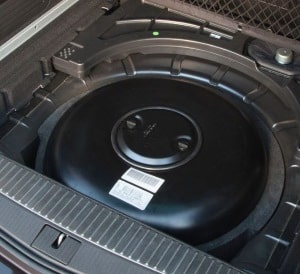LPG Gas Car – LP Gas Car: Does Car LPG Gas Auto Conversion Damage LPG Gas Car Engines?
Does car LPG gas auto conversion damage your engine?
It’s actually the opposite, as the high octane of car LPG gas (LPG gas for cars) prevents the damage caused by ‘knocking’, keeps spark plugs cleaner, and reduces carbon deposits.
 Car LP gas car (LPG gas for cars) used in an LPG gas car (LP gas car) is known as Autogas – car LPG gas (LPG gas for cars).
Car LP gas car (LPG gas for cars) used in an LPG gas car (LP gas car) is known as Autogas – car LPG gas (LPG gas for cars).
A car engine, when cold, is known to be more efficient as an LPG gas car when compared to a petrol car engine, particularly during warm up.
This is advantageous because petrol engines can take longer to warm up than an LPG gas car (LP gas car), and a faster warm-up is better for fuel consumption, emissions and engine operation.
In addition, car LPG gas (LPG gas for cars) has an octane of approximately 100 which means it has far less prone to pre-ignition (knocking) than most unleaded petrol fuels offered today, and is cleaner burning.
With LPG gas car (LP gas car), your car engine can run smoother with long term benefits such as cleaner spark plugs, valves, pistons and cylinder heads.
If you are considering an LPG gas car (LP gas car) vs petrol engines and whether you should convert your car or SUV to run on car LPG gas (LPG gas for cars), you will typically have a lot of questions.
Before deciding it’s important to understand if car LPG gas (LPG gas for cars) is good for cars and whether it damages engines.
Let’s examine the facts about an LPG gas car (LP gas car) vs petrol engines so that you can make an informed decision.
What is Car LPG Gas Auto Conversion?
 In simple terms, a car LPG gas auto conversion is the addition of a second fuel system, including an LPG tank, minor intake manifold modifications, an ECU/computer for fuel injected systems and various ancillary fittings.
In simple terms, a car LPG gas auto conversion is the addition of a second fuel system, including an LPG tank, minor intake manifold modifications, an ECU/computer for fuel injected systems and various ancillary fittings.
These additions enable the car LPG gas auto conversion to run on both fuels.
What Happens to LPG Gas Car Engines?
An LPG gas car has a cleaner-burning fuel than diesel or petrol, so using car LPG gas as a fuel may actually extend the engine life because using a fuel that burns cleaner should allow the LPG gas car (LP gas car) engine components to last longer.
Car LPG gas (LPG gas for cars) is approximately 100 octane, so there is less potential for pre-ignition (knocking) that can damage an engine.
Does Car LPG Gas Damage Engines?
Car LPG gas is good for LPG gas car (LP gas car) .
Car LPG gas compatible vehicle platforms typically do not damage engines and may actually prolong engine life and reduce maintenance, which makes it a great alternative fuel for an LPG gas car (LP gas car).
In addition to this:
- Manufacturers have offered dual-fuel models with the same warranties
- The only major difference between a petrol and car LPG gas (LPG gas for cars) engine is the fuel storage and intake systems
- Car LPG gas auto conversions to engines may not affect factory warranties
- Car LPG gas (LPG gas for cars) is cleaner burning than petrol or diesel in an engine
Car LPG Gas High Octane Prevents Pre-ignition (Knocking)
Using a lower-than-recommended octane fuel can cause pre-ignition.
This is also referred to as ‘knocking’ and can cause harm to your engine.
Car LPG gas (LPG gas for cars) has an octane rating of approximately 100 which typically exceeds that of premium petrol fuels and the recommended octane rating for all production cars.
Octane rating is particularly important for cars with high-compression engines as they can be prone to pre-ignition.
Factory Installed Car LPG Gas Engines
 Many European and Asian new car manufacturers offer LPG gas car (LP gas car) versions of their cars.
Many European and Asian new car manufacturers offer LPG gas car (LP gas car) versions of their cars.
The Europeans include Volkswagen, Citroën, Fiat, Ford, Opel, Vauxhall, Saab, Peugeot, Renault, Skoda, and Volvo. Toyota, Hyundai, Daewoo and Tata Motors are among the Asian manufacturers.
An LPG car can be OEM single-fuel models or dual-fuel conversions that run on petrol or car LPG gas (LPG gas for cars).
The dual fuel (bi-fuel) models, with two fuel tanks, run on either petrol or car LPG gas car (LP gas car).
Their normal petrol engines typically work well with an LPG gas car (LP gas car).
The warranties offered on OEM dual-fuel or dedicated LPG gas car (LP gas car) are the same as those for the petrol-only versions, which indicates the manufacturers’ confidence in car LPG gas car (LP gas car).
There is little difference between an LPG gas car (LP gas car) and a Petrol car engine
LPG gas car (LP gas car) engines are just variants of the standard petrol engine.
The main differences between LPG gas car (LP gas car) and petrol engines are the fuel itself, and the fuel storage and intake systems.
The engine block, pistons, spark plugs, ignition system, lubrication system, and electricals all remain the same.
On a dual fuel system, the driver can switch from gas to petrol or vice versa.
Typically the vehicle has a switch and the driver can select between the fuels.
Having two fuel tanks can double a vehicle’s range.
Car LPG Gas Auto Conversions Do Not Void Your Warranty
Your new car warranty remains intact unless the car LPG gas auto conversion causes the problem.
Car LPG gas auto conversions have a long positive track record and ever-improving technology, and typically will not damage engines.
As a result, it would be rare for the LPG gas car (LP gas car) conversion to cause a problem that would affect your warranty.
LPG gas car (LP gas car) systems are so reliable that more than one million have been factory-fitted.
When still operating in Australia, Ford and Holden (GM) offered factory-equipped LP gas cars.
Ford chose a liquid phase injection system for their factory-equipped LPG Falcon EcoLPi.
Holden chose a sequential vapour gas injection system for the LPG Ecoline Commodore.
Both LPG gas car (LP gas car) with full factory warranties.
The same liquid and vapour technologies are also available for aftermarket conversions.
The manufacturers of car LPG gas auto conversion systems also offer extended warranties on their LPG gas car (LP gas car) systems.
For example, approved manufacture for after market systems suppliers typically offer a 3 years / 100,000km warranty on late-model vehicles.
LP gas cars typically do not damage engine parts when installed and maintained to manufactures guidelines.
LPG Gas Car Engines Run Cleaner
Operating an engine on LPG gas for cars is good for cars and beneficial for your vehicle.
 An LPG gas car (LP gas car) is cleaner burning than either diesel or petrol, so engine life is extended and Autogas – car LPG gas (LPG gas for cars) does not damage engines.
An LPG gas car (LP gas car) is cleaner burning than either diesel or petrol, so engine life is extended and Autogas – car LPG gas (LPG gas for cars) does not damage engines.
If anything, car LPG gas (LPG gas for cars) may prolong engine life.
Using a fuel that burns cleaner should allow the engine components to last longer.
LPG gas car requires less frequent engine oil and spark plug changes, so service intervals can be increased, reducing service costs.
In addition to lower fuel costs, an LPG gas car (LP gas car) normally requires less maintenance.
This means you will have to spend less per year on vehicle upkeep.
An LPG gas car (LP gas car) is better for engines, as it reduces carbon build up during internal combustion.
It produces less carbon overall when compared to either diesel or petrol.
That manifests itself in vehicle emissions and waste, which will also start to coat many of the engine components.
The more waste materials that build up on these components, the quicker they will wear out.
Overall, this helps to lower your total regular maintenance costs.
LPG Gas Car – LP Gas Car Problems
LPG gas car (LP gas car) problems are rare, but they could happen.
Impurities in the car LPG gas (LPG gas for cars) could have a negative impact on performance, however car LPG gas (LPG gas for cars) in Australia is almost entirely sourced from natural gas streams, as opposed to oil refineries, so the risk of encountering impurities is very rare.
Prolonged system services may also contribute to vehicle performance issues, but this can be avoided by ensuring services are always conducted by an approved service repairer.
Conclusion
In summary, there are many benefits of car LPG gas (LPG gas for cars) for your car engine.
An LPG gas car (LP gas car) prolongs engine life as it is cleaner burning, reducing carbon buildup, and it’s octane rating can remove the risk of pre-ignition.
In addition to this, it extends the period between certain service procedures and is generally cheaper than traditional car fuels, making a car LPG gas auto conversion a great way to save money and reduce CO2 emissions.
New Residential LPG customer?
New Business LPG customer?
Existing ELGAS customer?
- Butane – Butane Gas – Butane Chemical Formula- Butane Gas Canister - April 23, 2025
- BBQ – Gas and Charcoal BBQ Features – Charcoal BBQ vs Gas BBQ Comparison - March 31, 2025
- GPL Gas (GPL Fuel) – GLP Gas – LPG Gasul: GLP – GPL Station Near Me - March 26, 2025
Steve Reynolds
Technical Consultant
Steve Reynolds is a leading expert in the LPG industry with over 22 years of experience. As part of the national management team at ELGAS, Steve ensures the safe and efficient storage, handling, and transportation of LPG. He serves as the lead investigator for incidents and collaborates with authorities on industry developments.
Steve is a technical advisor to Standards Australia and Gas Energy Australia (GEA), and an active member of the World LPG Association (WLPGA), contributing to global standards and technical reviews. He holds a BSc. (Hons) in Industrial Chemistry from UNSW and has held senior safety and technical roles at ELGAS, making him a trusted authority in LPG safety and standards.
